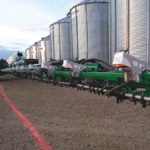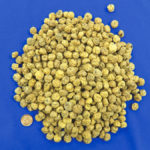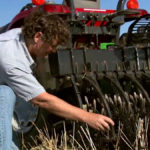
Ontario technology addresses $3 billion a year problem
Idle management system saves on fuel and maintenance costs

Ontario company makes global pitch at food summit in Germany
North America’s largest quinoa producer is seeking more growers

Made-in-Ontario technology simplifies crop traceability
The RiteTrace system help to limit paper record-keeping and makes quality assurance easier

Ontario company launches AI-based system to help automate fruit harvest
Croptracker traces fruit through the production process, but new image collection options can analyze fruit in bins for more efficient marketing and delivery

Canadian company chosen for global agriculture business accelerator
SomaDetect will be part of the Pearse Lyons Accelerator’s latest group

New system lets farmers make money off their farm data
Farmers will be able to own and control their data and decide when it can be shared or purchased

Made-in-Ontario food safety treatment for dry foods now used across North America
Product helps reduce food safety issues on foods that can’t be otherwise sanitized before consumption

Solving spray problems with new technology
Sprayer innovations can help reduce herbicide resistance by making sure lethal doses are delivered to weeds

Lessons from developing a new Ontario crop
Tiger nuts can be made into dairy alternatives, but oils, proteins and starches can be extracted as well

Evaluating mechanical weed control options
Researchers found that when two methods are used, weed control improves
